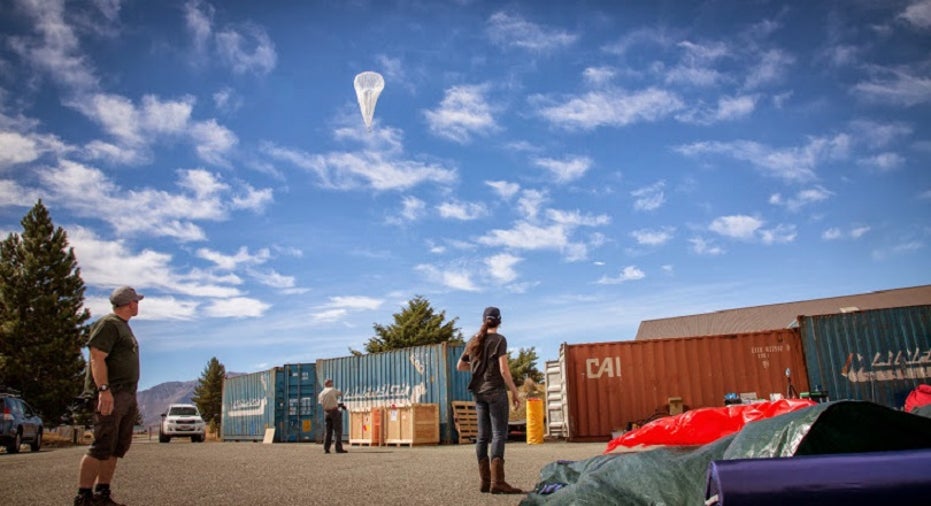Google Accused of Stealing 'Project Loon' Balloon Idea

Three years ago, Google announced plans to provide Internet access to underserved areas of the world via high-flying balloons.
Now, Space Data Corporation claims Project Loon is based, at least in part, on its own technology.
The company offers two products—SkySat and SkySite—each of which rely on a balloon-based telecommunication system to beam wireless services across the nation. A collection of up to 70 balloons can provide wireless coverage for voice and data services in the continental US.
Similarly, Loon launched in June 2013 with the intention of reaching those far corners of the globe—jungles, archipelagos, mountains—where it is difficult and costly to build Internet infrastructure.
But was the program a stroke of genius by Google or a borrowed idea? In a complaint filed Monday in Northern California District Court, Space Data claimed Google infringes on two patents: one for an "airborne constellation of communications platforms and method" (filed in 1999), another covering "unmanned lighter-than-air safe termination and recovery methods" (filed in 2001).
"Project Loon improperly and unlawfully utilizes Space Data's confidential information and trade secrets which Space Data disclosed to Google" nearly 10 years ago, the filing said.
The Wall Street Journal reported on Space Data in early 2008; at the time, the company was launching 10 balloons a day in the US to provide telecom services to truckers and oil companies. The program caught the eye of Google—which was already moving into wireless services and considered contracting with Space Data, or even buying the firm, the Journal said. Neither opportunity came to pass. But a few years later, Project Loon was born.
Google did not immediately respond to PCMag's request for comment.
As The Verge points out, this is not the first time X—Google's moonshot division—has been accused of trade secret theft. In 2014, architect Eli Attia sued over a venture he claimed was based on his Engineered Architecture system.
This article originally appeared on PCMag.com.



















